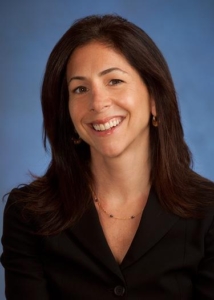 By Melissa J. Anderson (New York City)
By Melissa J. Anderson (New York City)
Throughout her life, Australia-born Sarah Walker, Executive Director of the Enterprise Data & Services Group at Morgan Stanley, has demonstrated a devotion to solving problems and efficiency. Energetic and direct, she described how she entered the world of IT after becoming frustrated with the indirect pace of her university education.
She entered university intending to study journalism. “I wanted to be a writer,” she explained. “But I quickly decided I hated university! I thought I could pick up a book and learn anything they were going to teach me on my own. So I convinced my parents to say yes to me dropping out if I could find a job.”
“I think they only said yes because they thought I would never find one!” she said with a laugh. But, she continued, she did find work. “It was the early ‘90s and I got a job doing operations reconciliation work at Citigroup in Sydney. I had a big computer sitting on my desk, yet everything was still being done manually. I thought, ‘why are we doing this with a calculator and pencil and paper?’”
Walker turned her computer on, and worked out a way to turn the 8-hour ordeal into a 1-hour process. “From then on, I’ve been hooked. My career has been about making processes more efficient and solving problems.”

 By Melissa J. Anderson (New York City)
By Melissa J. Anderson (New York City) By Melissa J. Anderson (New York City)
By Melissa J. Anderson (New York City) By Melissa J. Anderson (New York City)
By Melissa J. Anderson (New York City) By Melissa J. Anderson (New York City)
By Melissa J. Anderson (New York City) By Melissa J. Anderson (New York City)
By Melissa J. Anderson (New York City) By Melissa J. Anderson (New York City)
By Melissa J. Anderson (New York City) By Melissa J. Anderson (New York City)
By Melissa J. Anderson (New York City) By Melissa J. Anderson (New York City)
By Melissa J. Anderson (New York City)